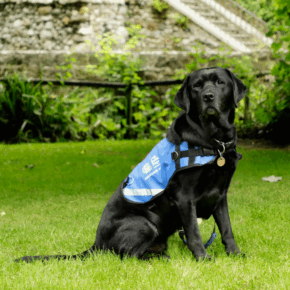Battling the ‘black dog’ of depression
Dublin People 08 May 2015EVERY week I meet people who are devastated by the depth of their own feelings of depression.
And each time I am moved by the ability and generosity of spirit that enables them to put their own pain to one side in order to listen to others and help them find a ray of hope.
The support groups are not based on talking only about what is
‘wrong’; they are about acknowledging what the person is finding particularly hard at that time, and identifying actions that could really help alleviate the pain that depression can bring.
The expertise people have to offer at the groups has come about through their own unique experience of depression, anxiety, bipolar or other related conditions, and what is shared is moving, real and deeply insightful.
Aware offers 45 support groups around the country each week. I often hear that people come as far as the door of a support group many times, only to walk away in fear of taking that first step.
I asked some people who attend our support groups to share their thoughts on taking that first step and about what aspect of the groups made a helpful difference to them.
Betty wrote:
“In my own experience what put me off in the early days is that I assumed everyone attending would be very sick; that they’d all be heavily medicated; that everyone would be in such a bad way that it might make my own anxiety and depression worse. Why go somewhere that you are surrounded by people who feel as bad as you?
“Instead I was so surprised when I tried the first meeting; surprised at my own misconceptions – I met normal people – people you might meet at the shop. I’ve gained tips and understanding and support that have had a huge impact on my life.
?
When people do take that first step, they realise that there’s nothing to fear; they’re so surprised to find this safe, honest space, where they can breathe, where they’re understood. Sometimes sitting quietly is enough.
“When I was diagnosed with bipolar disorder my life was turned upside down,
? Linda told me.
“I was in shock and frightened and I knew nobody in the same situation as me.
“I didn’t know how to help myself or to try and move on with my life. I felt so alone and was experiencing so many new and scary feelings that I couldn’t tell anyone about.
“A close friend had heard about Aware meetings and encouraged me to try them. I kept saying
‘yeah, I’ll go next week’ and then I made excuses not to go. I didn’t know what to expect. It took me one whole year to attend my first meeting.
“I remember sitting outside in my car, my stomach churning, fighting a strong urge to drive away. I didn’t. I walked in with my head hung low. I remember one of the Aware volunteers coming straight over to me. Her warm welcome reassured me, and it was the first step towards a better life.
?
Through regular attendance at the groups, people gain a whole support network without any demands or expectations being put on them.
Linda has two tips she says really helped her. One was to keep a mood diary and the other was to ask trusted friends and family to act as mood spotters.
“The mood diary allowed me to monitor changes in my mood, over time,
? she explained.
“It helped me to see that I had periods of stability, which increased my confidence. I brought the mood diary with me when I visited my psychiatrist, which enabled her to prescribe the right medications. Having friends as mood spotters helped me too. I would compare where they thought my mood was at with my mood diary and them playing a role increased my feeling of being supported in my illness.
?
Some people just write numbers down if it’s too hard to write a diary – zero is a low mood day and five is good. People feel surprised when they realise that every day isn’t a zero day – it gives a sense of hope.
The group share in each others’ victories against the
‘black dog’. With thousands of visits paid to our support groups every year it’s evident that people are getting something tangible from meeting others who are having similar experiences.
It’s a far more optimistic environment than you’d expect from a
‘depression’ support group. People laugh at meetings too – and this brings relief and is felt profoundly because it brings with it the realisation that it’s still possible and that it might happen again.
Some people have been well for a long time; they come back to support others, keeping hope alive, sharing what helped them. Depression is a lonely experience yet I can’t count the number of those attending who say they love their Aware support group meeting; that they enjoy it; sometimes it’s the only place where they have a chance to speak to others for weeks at a time or to express themselves freely as they worry about how their mood affects family members.
What makes the Aware Support Group special is that we experience the stripping away of all of the protective layers that people wear to hide behind in the
‘normal’ day.
I think when you attend a Support Group, you meet the person, not the outer shell, so you come away feeling connected and understood.
The purpose of Aware support groups is to provide a safe space where you can openly share your thoughts and feelings and learn about what you can do to support others and yourself when experiencing depression.
Aware’s support group in Dublin 15 meets at the Crosscare centre, Main Street, Blanchardstown Village every Thursday. Groups run for 90 minutes, are free of charge and you don’t need to book. For more details email rosemarycarvill@aware.ie, call 01-6617211 or visit www.aware.ie.











